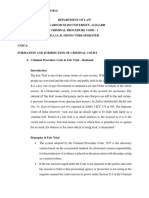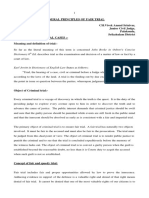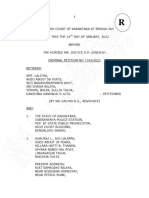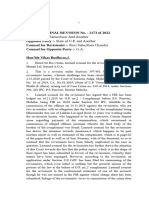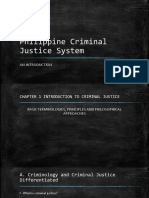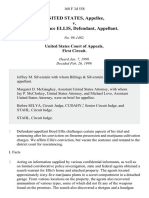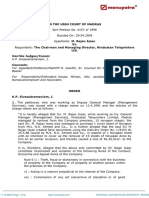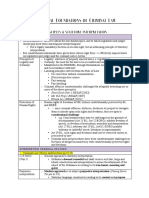0% found this document useful (0 votes)
138 views28 pagesKarnataka HC Section 311 CRPC 430706
- The petitioner is challenging an order by an Additional Sessions Court that declined his request to lead defense evidence in a criminal case where he is accused of offenses under POCSO and IPC sections.
- The petitioner argues he has a right to lead defense evidence as he faces charges that can result in imprisonment of over 3 years. He was unable to earlier due to being in judicial custody.
- The court must consider exercising its powers under Section 311 of the CrPC to summon witnesses if it determines their evidence is essential to a just decision in the case. Fair trial rights of the accused should not be jeopardized.
Uploaded by
Mounika MoniCopyright
© © All Rights Reserved
We take content rights seriously. If you suspect this is your content, claim it here.
Available Formats
Download as PDF, TXT or read online on Scribd
0% found this document useful (0 votes)
138 views28 pagesKarnataka HC Section 311 CRPC 430706
- The petitioner is challenging an order by an Additional Sessions Court that declined his request to lead defense evidence in a criminal case where he is accused of offenses under POCSO and IPC sections.
- The petitioner argues he has a right to lead defense evidence as he faces charges that can result in imprisonment of over 3 years. He was unable to earlier due to being in judicial custody.
- The court must consider exercising its powers under Section 311 of the CrPC to summon witnesses if it determines their evidence is essential to a just decision in the case. Fair trial rights of the accused should not be jeopardized.
Uploaded by
Mounika MoniCopyright
© © All Rights Reserved
We take content rights seriously. If you suspect this is your content, claim it here.
Available Formats
Download as PDF, TXT or read online on Scribd
/ 28
























